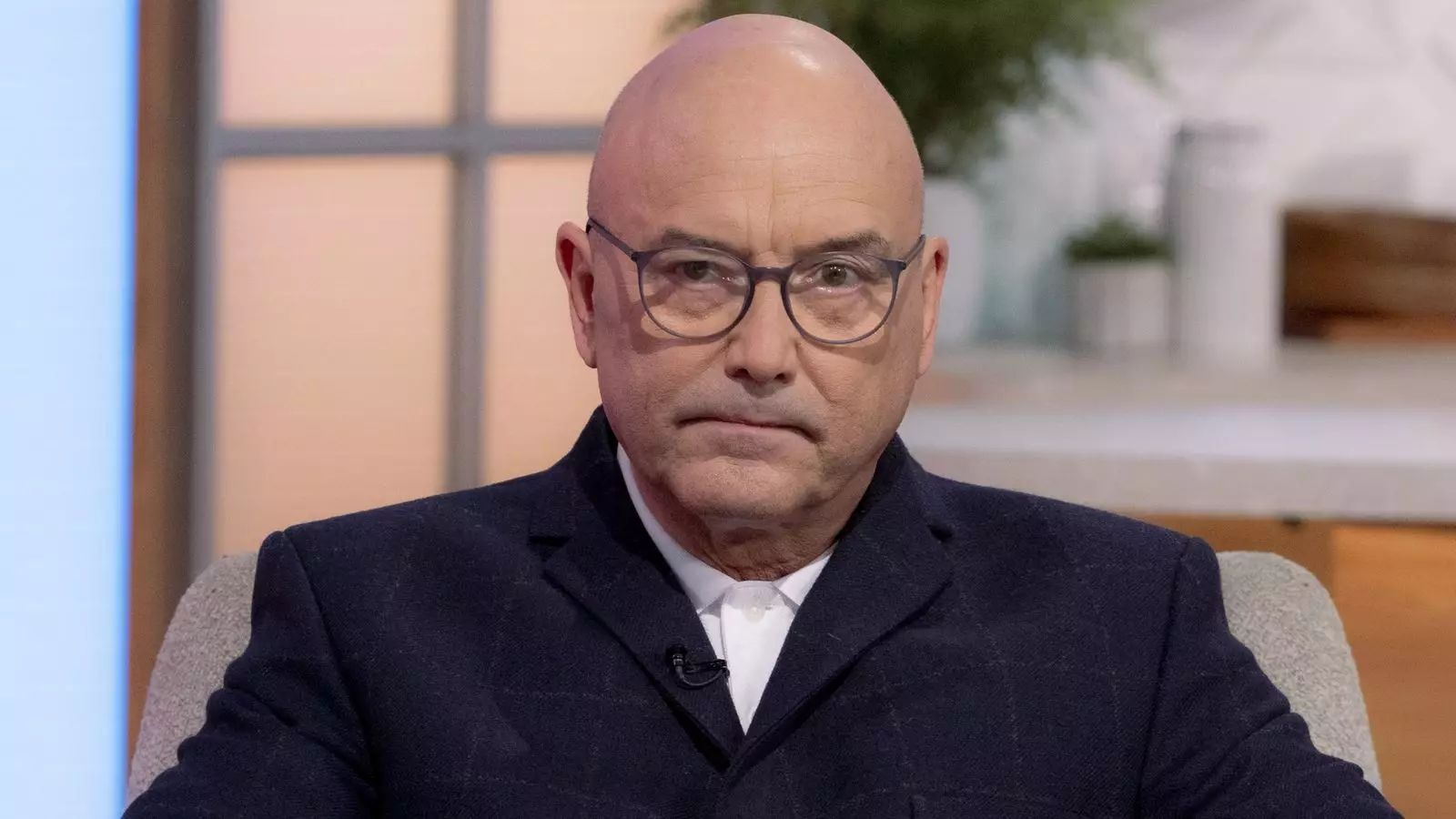In today’s media landscape, allegations can transform into headlines almost instantaneously, demanding scrutiny and often invoking a whirlwind of public speculation. This is exemplified by the recent statements made by Gregg Wallace, the popular MasterChef UK judge, in response to reports surfacing about his conduct on the BBC game show *Impossible Celebrities* back in 2018. Wallace has firmly rebuffed claims that he had engaged in any inappropriate behavior during his tenure on the show, asserting that there was never any accusation of sexual misconduct directed towards him. The scrutiny surrounding Wallace sheds light on how quickly accusations can gain traction, regardless of their veracity.
The incident under review, investigated by the BBC, occurred when Wallace was still an influential figure in British media, promoting culinary arts and hosting multiple programs. Despite the allegations, a BBC internal review subsequently cleared him to continue his involvement with the network. This situation highlights not just the resilience of Wallace but also the organization’s commitment to addressing complaints promptly.
In his response via Instagram, Wallace emphasized his integrity and honesty, particularly regarding his relationship with his wife, Anne-Marie Sterpini. He eloquently expressed the notion of fidelity, stating, “I have always been true to my wife Anna and have never flirted or hit on anybody.” By choosing to publicly affirm his loyalty, Wallace aims to mitigate public misconceptions while reinforcing his character in response to purported media sensationalism. His determination to clear his name illustrates the growing pressure public figures face in today’s atmosphere where reputations can be tarnished in the blink of an eye.
Additionally, his insistence on the lack of any allegations of flirting or inappropriate comments establishes a critical narrative that addresses not just his actions, but also the tone of public discourse surrounding such incidents. Promotions of integrity and fidelity serve as a defensive anchoring in the face of potentially damaging narratives. Through this lens, Wallace’s response is not merely a defense; it is an assertion of agency in a media-driven environment that often preys on scandal.
The BBC has a complicated relationship with controversy, particularly in light of previous scandals that have stirred public outcry. A spokesperson for the organization reaffirmed their commitment to handling allegations with seriousness, stating, “We do not tolerate any form of inappropriate behaviour and have robust processes in place.” This highlights the ongoing scrutiny surrounding their programming and the measures they take to prevent misconduct.
Moreover, the BBC’s context is fraught with challenges, particularly following incidents involving high-profile figures. Complaints about audience welfare on shows like *Strictly Come Dancing* and issues surrounding former presenter Jermaine Jenas add layers to the conversation about the workplace environment within the network.
This investigation into Wallace serves as a pivotal moment not just for him personally but also for the BBC as it navigates the treacherous waters of public perception, employee welfare, and viewer trust. The checks and balances in place are crucial, yet they also speak to the larger cultural shifts towards accountability and transparency in entertainment industries.
Wallace’s decision to focus on family—particularly his dedication to his son Sid, who is autistic and non-verbal—illustrates the human aspect underlying public personas. His intention to prioritize his family over his media obligations sends a potent message about the balance of professional and personal responsibilities, particularly in challenging circumstances. With shared values of family and commitment seemingly at the forefront of his narrative, Wallace’s experience resonates on a more relatable level.
Moreover, his personal story contributes to a broader dialogue on fatherhood and public identity, where the complexities of juggling fame and familial duties often lead to public scrutiny. As audiences become more discerning about the lives of their public figures, narratives surrounding their personal lives become increasingly integral to understanding their professional action.
The situation involving Gregg Wallace provides insightful commentary on the broader implications of allegations in contemporary media. It illustrates the swift dynamics of public opinion, the significance of personal integrity, and the necessity of organizational accountability. While Wallace stands firm in his defense, this episode serves as a reminder of the complexities faced by public figures and the impact of the media landscape. As narratives unfold, it is crucial to maintain a balance between truth and sensationalism, fostering a culture that prioritizes both transparency and careful scrutiny. In navigating these challenges, personal stories—such as those of family and dedication—remain essential in reaffirming human connections amidst public trials.


Leave a Reply